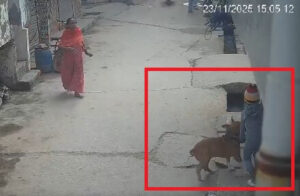Vivo moves Delhi HC challenging freezing of its bank accounts by ED

View of an advertisement for Vivo in Shanghai, China, 15 January 2019. — Photo by ChinaImages
View of an advertisement for Vivo in Shanghai, China, 15 January 2019. — Photo by ChinaImages
New Delhi | Chinese mobile manufacturer Vivo on Friday moved a plea in the Delhi High Court challenging the freezing of its various bank accounts by the Enforcement Directorate (ED) under the Prevention of Money Laundering Act (PMLA), 2002.
In the writ petition, Vivo said the orders against it are in stark contravention to the mandate of Section 17 of the PMLA, as the same do not entail any reasons for freezing, let alone cogent “reasons to believe” as to why the bank account should be frozen. It is a generic order passed mechanically without any application of mind.
It said the total non-application of mind and arbitrariness is manifest from the fact that even the amount in question has not been quantified by the respondent and blanket orders for freezing all the bank accounts have been passed causing substantial and irreparable hardship to the petitioner and gravely impacting its business and reputation.
It further said the freezed accounts are utilised for the payment of salaries and statutory dues, opening of letter of credits for the petitioner’s operations and for all kinds of expenses necessary for day-to-day functioning of the petitioner.
“Monthly payments of around Rs 2,826 crore have to be made towards statutory dues, salaries, rent, monies for daily business operations. Due to the freezing of the bank accounts, the petitioner will be unable to honour its aforesaid obligations not only towards various statutory authorities, but also towards its employees and customers,” it said further.
Vivo has told the court that the circulation of the news about the ED searches has maligned its image among its suppliers and customers, “leading to reputational and financial loss, and irreparable damage to the years of goodwill developed” by it.
“The freezing of the bank accounts will not only impede the existing/prospective business operations of the petitioner conducted through the bank accounts but will bear an adverse effect on the petitioner’s operations across the globe,” it added.
IANS






